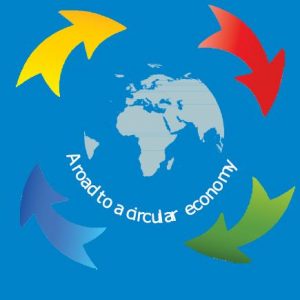Discovering… Circular Bioeconomy
Save the Date 20th September : Discovering… Circular Bioeconomy Seminar
Partnership between Universidade Lusofona de Humanidades e Tecnologias, DREAMS and Trier of Applied Sciences University
Where? José Araújo Auditorium
Between 2 and 6 pm.
CHECK the Seminar Program Circular Bioeconomy 20th September 2019 ULHT
CHECK the Posgraduate Courses Program
Seminar Program Circular Bioeconomy 20th September 2019 ULHT – José Araújo Auditorium
Start
– 14.00: Adília Charmier, opening and presentation of the ‘Circular Bioeconomy’ course and events of 2019/2020
First Session – Building the Foundations for a Circular Bioeconomy
– 14:30: Sofia Santos, ‘The Economics of Circular Bioeconomy’
– 14:50: Nuno Oliveira, ‘The Ecology of Circular Bioeconomy’
– 15:10: Susana Santos, ‘Biotechnology and the Hidden Worlds in Circular Bioeconomy’
– 15:30: Debate
Coffee-Break 16.00-16.30
Second Session – Working with Circular Bioeconomy
– 16.30: Fernanda Cássio, ‘Emerging Bio-Based Solution’
– 17.00: Fernando Leite, ‘A Wasteless Future’
– 17:30: João Luís Barroso, ‘Sustainable Winescapes, a Drink to a Circular Bioeconomy’
18:00- End of sessison
Speaker:
- Adília Januário Charmier-Prof Catedrática FE-ULHT / CEO EXM Ceuticals Portugal
- Sofia Santos-Especialista em Economia Circular / Prof. Convidada ISEG-IDEFE e DREAM-ULHT
- Nuno Oliveira -Gestão de Ecossistema, Esporão SA / Prof. convidado ISEG-IDEFE e DREAMS-ULHT
- Susana Santos-Chief Innovation Officer, EXM Ceuticals Portugal / Prof DREAMS –ULHT
- Fernanda Cássio-Diretora CBMA – Centro de Biologia Molecular e Ambiental, Univ Minho
- Fernando Leite-CEO LIPOR
- João Luís Barroso-Coordenador do Programa de Sustentabilidade dos Vinhos do Alentejo, Comissão Vitivinícola da Região do Alentejo, PSVA-CVRA
Why?
Parallel to the kick-off of the 1st Edition of the Graduate Program in Circular Economics – Environment as a Sustainability Factor promoted by the Faculty of Engineering of the Universidade Lusófona and developed in close collaboration with the Trier University of Applied Sciences (Germany), it was created. Discovering… Circular Bioeconomy seminar, with the aim of showing all concerned that these are ‘frontier themes’, where much remains to be developed and discovered, but also where much is already happening, both in academia and in the companies and society in general.
We are facing times of change, where sharing knowledge – and curiosity! – will be decisive for the long awaited and widely announced paradigm shift. This session will be open and free to all interested parties upon prior registration.
Why ‘Circular Bioeconomy’?
In response to the first decade of the millennium in which, for the first time consistently, Sustainable Development was placed at the top of the international political agenda, between 2010 and 2018, the ‘new economies’ diversified growth.
The first wave came with the green economy, with proposals for alternatives to GDP and neoclassical indicators of growth, followed by the circular economy, initially to find answers to the problems of waste and industrial waste and inefficiency, subsequently evolving. for a more strategic view of integrating urban and technological development. At the same time, bioeconomics also appeared on the scene as a new way of understanding and valuing forest and agricultural natural resources, which is very focused on responding to the changing energy paradigm and the need to mitigate climate change and transform forest-based industries and technologies.
But in 2020, will it make sense to continue to look at these new economies as ‘disciplines’ or thematic areas? The urgency to find the promised ‘new economy’ persists, the resistance created by decades of undeniable socio-economic successes of Western capitalist societies continues to weigh on our ability to change the development model where climate change, ecological degradation and dissatisfaction and unrest are part of our daily lives. It is more important than ever to take the best of old and new economies and to point to alternative ways and possible solutions to change what has to be changed.
From the idea of mergers between economic models in an attempt to create a new symbiosis emerges the concept of ‘Circular Bioeconomy’ .
SIGN UP or send an e-mail f5499@ulusofona.pt
